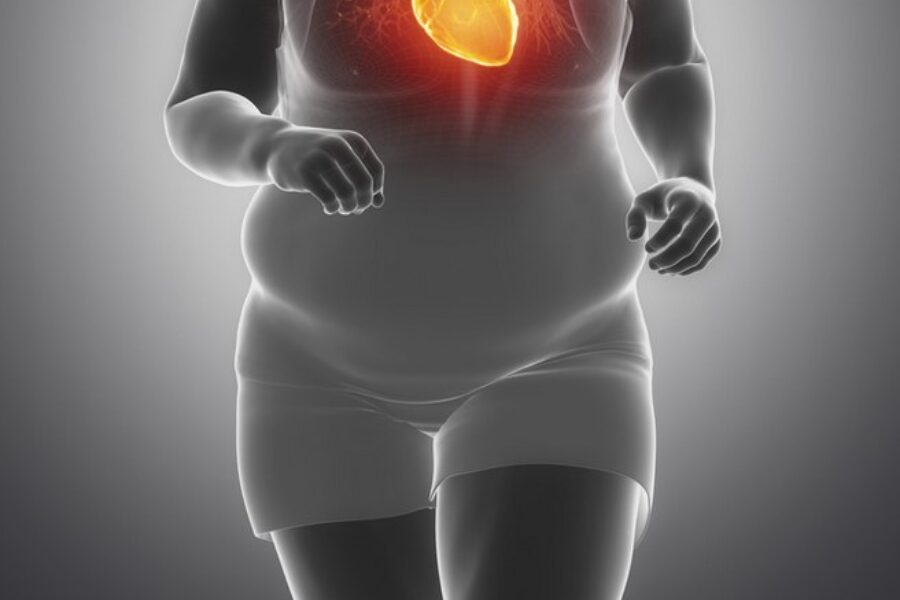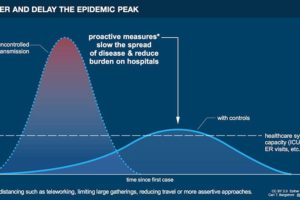This study shows that when doctors measure the ratio of waist to height of their patients, rather than looking at their body mass index (BMI), the supposed survival advantage for people with a BMI of 25 or more disappears. This is one of many recent studies to debunk the mythical “Obesity Paradox” that often gets used by the fat acceptance movement as an excuse to continue diets and lifestyles that put them at a much greater risk of disease, morbidity, and death from obesity and obesity related complications. In a previous newsletter a few weeks ago, I reported on other data that came to the same conclusion, though using different methods and data.
This study helps to fill in the gaps and provide more proof that the so called “Obesity Paradox,” the idea, based on a some flawed studies a few years ago, that mortality rates for overweight or obese people in certain populations is lower, does not actually exist. As a nutritionist who spent part of my internship working with the National Eating Disorders Association (NEDA), and who sees eating disorder clients, I find this question on the existence of the Obesity Paradox to be extremely important. The data helps practitioners like me prioritize how I will spend time with my clients. Knowing that the Obesity Paradox doesn’t exist means that I have an ethical responsibility to reinforce the importance of weight loss within an overall healthy diet and lifestyle pattern. Not doing so drops the ball on my clients and puts their health at risk by not prioritizing the most important changes needed for their healthcare. I am a supporter of treating EVERYONE with compassion, respect, and dignity, regardless of their weight or fat mass, but that doesn’t mean that being overweight or obese is not a serious medical issue that we should just throw out the window.
During my graduate education and internship, I was surprised to find many colleagues buying into the hype coming out about the Obesity Paradox. These types of practitioners often prioritize mental health above physical health….to the detriment of their clients’ long-term health. This is particularly so when you look at the massive number of studies showing how prioritizing sound (not diet fads, gimmicks, or quick fixes mind you) diet and lifestyle changes that lead to weight loss can improve physical health, mental, and overall well being. I get it, weight loss is a struggle, a struggle that takes persistence and determination. It doesn’t work well with the quick fixes being peddled by all sorts of fad diet pushers or our culture that wants results yesterday. It also doesn’t help that the food industry is a billion dollar industry that spends obscene amounts of money on marketing and now has grocery stores so full of processed, hyper-palatable junk foods, that it can seem impossible for people to eat whole foods. All this, while government subsidizes the junk food industry, and restaurants sell this garbage with massive portion sizes that are engineered to be addictive around every corner. I say all this because it’s important for people to understand that this isn’t so much a problem of personal responsibility as it is a societal problem related to how our government and economic system prioritizes short term profits over people’s long term health. There are ways to beat this of course, but realistically, it is not easy and requires help from healthcare practitioners, nutritionists like myself, and buy in from the families of those who need to make these changes. So, please avoid hate filled messages centered around shame. A more productive way forward is to get knowledgeable about all these issues and learn how you can support your friends and family. Shame is not helpful. Support, encouragement, and compassion are.
In addition, to the surprise of few, the study also showed that waist to height ratio was a much better indicator of health outcomes than BMI. This is not a surprise because most healthcare practitioners know that BMI lumps those with high muscle mass, particularly in the upper body, into the overweight and obese categories even though blood data on lipids and blood sugars, as well as other health outcomes, would show this is a mistake and that these individuals are perfectly healthy, if not thriving. This is part of the issue with weight loss. As you work on your health, the scale often stalls out, despite that, many of my clients find their waist sizes decrease but the scale stays the same. This is a good thing because it shows your body is building muscle mass as a replacement of fat mass. Despite this, many people get extremely disheartened when they see this phenomenon and it can become very discouraging…even for practitioners.
I am one of those individuals as a muscular person with excellent blood tests of health and high physical activity. Despite this, I have a BMI that puts my in the borderline overweight-obese category. Even so, insurance companies continue with the BMI metric. Just know that we healthcare practitioners often have to use it but know that it’s flawed. Also know that if you see the scale stall but your waist size still drops over time…you are on the right path.
Click here to see the study.
Check out my blog post The Obesity Paradox Put to the Test, Again to learn more about the reality behind the obesity paradox controversy.
Also! Check out my Instagram page for inspirational messages, scientific articles, photos of what I’ve been up to, and more! @feedyourbodyandmindllc
Did you know that I’m on Insight Timer? I have three mindfulness meditations to help you develop your practice. Give them a try!
If you are an athlete considering supplements to increase recovery and endurance then check out my blog post on Evidenced Based Supplements for Training Like and Athlete.






